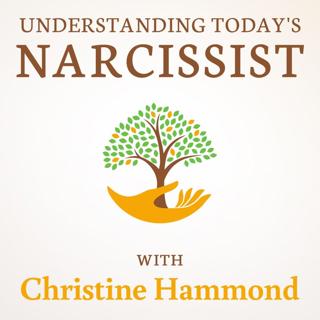
Dating Apps and Narcissism
Christine visits with her colleague Nate Webster to discuss dating apps and narcissists, the relationship between this social technology and the behavior of them, and what to watch out for if you are using these apps to find a mate. www.growwithchristine.com Advertising Inquiries: https://redcircle.com/brands Privacy & Opt-Out: https://redcircle.com/privacy
7 Mars 201811min

Shaming tactics
Narcissists use shame to control people around them. It is a very real form of emotional abuse. By recognizing these tactics (there are 11 different examples) you will be better equipped to manage through these tactics. www.growwithchristine.com Advertising Inquiries: https://redcircle.com/brands Privacy & Opt-Out: https://redcircle.com/privacy
6 Mars 201815min

Smear Tactics
How does a narcissist control you? Christine covers the 5 ways, the tactics they use in a relationship to smear you - understanding these tactics can help you out-maneuver the narcissist. www.growwithchristine.com Advertising Inquiries: https://redcircle.com/brands Privacy & Opt-Out: https://redcircle.com/privacy
27 Feb 201816min

Hidden Shame
Hidden shame can show up in the strangest ways, and at unexpected times in any relationship. Christine shares how an individual might lie to cover up their own hidden shame, bury the truth in an effort to protect themselves. www.growwithchristine.com Advertising Inquiries: https://redcircle.com/brands Privacy & Opt-Out: https://redcircle.com/privacy
20 Feb 201814min

Abuse Part 8-Legal
In this ongoing series, Christine Hammond reveals the toxic ways that narcissists can be abusive in relationships and how you can protect yourself from these tactics. www.growwithchristine.com Advertising Inquiries: https://redcircle.com/brands Privacy & Opt-Out: https://redcircle.com/privacy
8 Feb 20188min

Abuse Part 7-Spiritual
In this ongoing series, Christine Hammond reveals the toxic ways that narcissists can be abusive in relationships and how you can protect yourself from these tactics. www.growwithchristine.com Advertising Inquiries: https://redcircle.com/brands Privacy & Opt-Out: https://redcircle.com/privacy
1 Feb 201811min

Abuse Part 6 -Financial
In this ongoing series, Christine Hammond reveals the toxic ways that narcissists can be abusive in relationships and how you can protect yourself from these tactics. www.growwithchristine.com Advertising Inquiries: https://redcircle.com/brands Privacy & Opt-Out: https://redcircle.com/privacy
25 Jan 201811min

Abuse Part 5-Sexual
In this ongoing series, Christine Hammond reveals the toxic ways that narcissists can be abusive in relationships and how you can protect yourself from these tactics. www.growwithchristine.com Advertising Inquiries: https://redcircle.com/brands Privacy & Opt-Out: https://redcircle.com/privacy
18 Jan 201822min





















